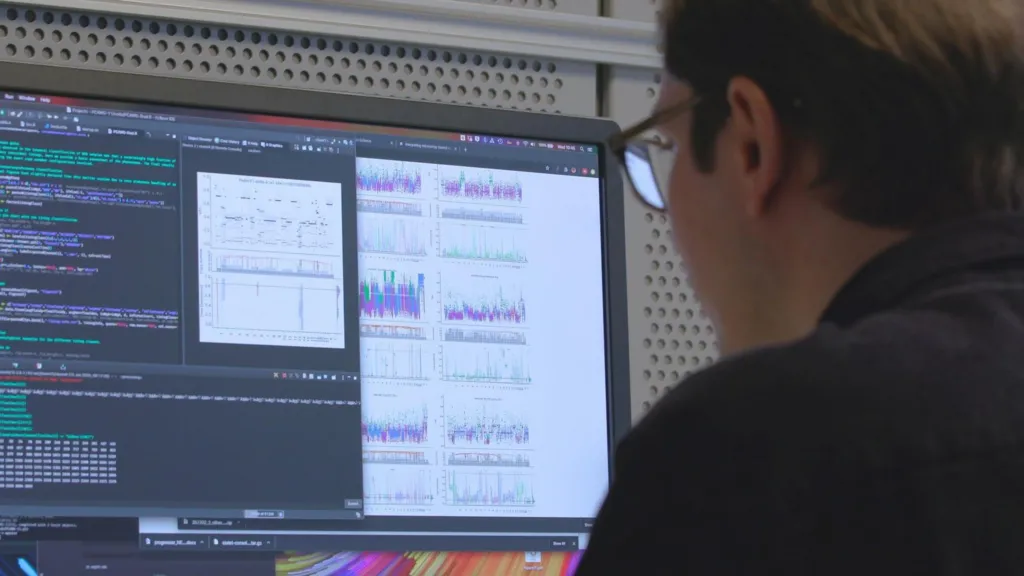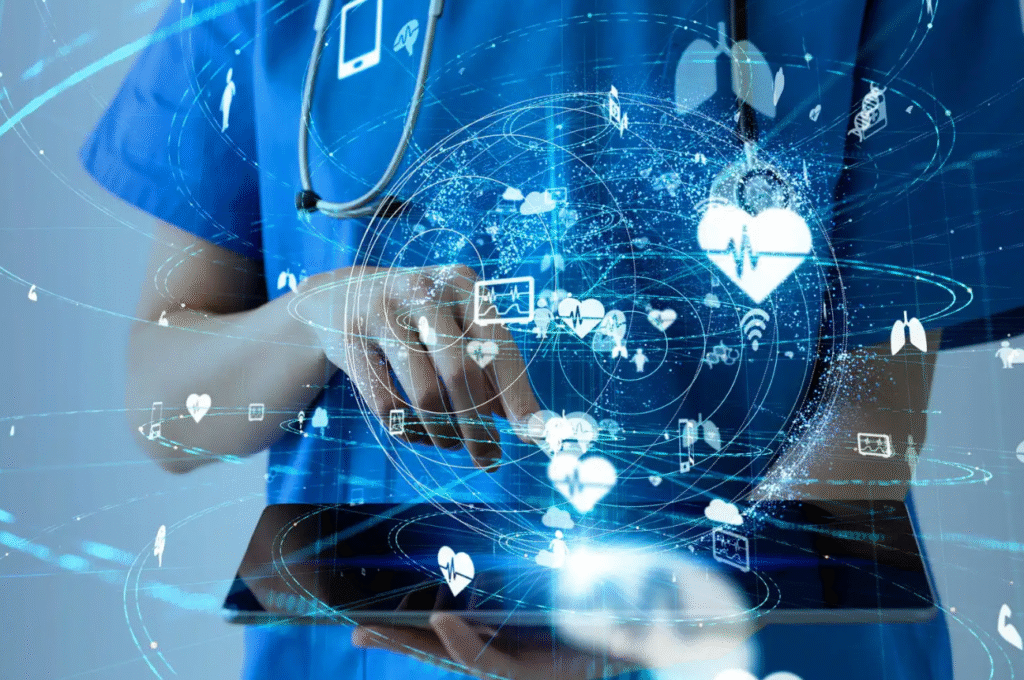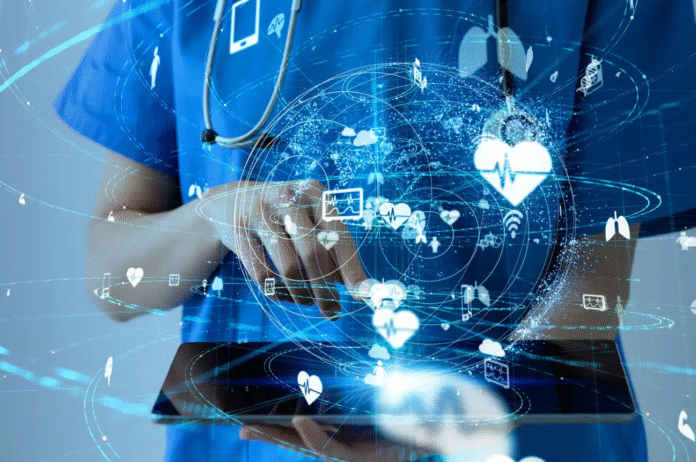AI Future Health Predictions: A Groundbreaking Step in Medicine
AI future health predictions are no longer science fiction, they are quickly becoming reality. Scientists have now developed an artificial intelligence system capable of forecasting a person’s health risks up to ten years in advance. The model, named Delphi-2M, has shown remarkable accuracy in predicting the likelihood of more than 1,000 diseases, transforming how doctors and hospitals could approach healthcare.
Just as weather forecasts help us prepare for rain, AI future health predictions could give individuals and medical professionals a heads-up on looming health challenges. Imagine being told with scientific confidence that you have a 70% chance of developing type 2 diabetes or heart disease years before symptoms ever appear. That’s the revolutionary vision researchers are pursuing.

How AI Future Health Predictions Work
The Delphi-2M system uses the same underlying technology as AI chatbots like ChatGPT, which are trained to identify patterns in language. But instead of words, Delphi-2M studies anonymous medical records to forecast what diseases are most likely to develop and when.
Unlike fortune-telling, it doesn’t claim to predict exact dates. For example, it won’t tell someone they will have a heart attack on October 1st. Instead, it calculates probabilities: a one-in-ten risk of a heart attack within the next year, or a high likelihood of developing sepsis or liver disease within the next decade.
Professor Ewan Birney, interim executive director of the European Molecular Biology Laboratory, explained:
“Just like weather, where we can forecast a 70% chance of rain, we can now forecast health. And we can do that not just for one disease, but across hundreds at the same time. We’ve never been able to do this before, and it’s very exciting.”
Training the Model on Real-World Data
To build Delphi-2M, researchers relied on data from over 400,000 people in the UK Biobank, a large-scale medical research project. The records included hospital admissions, GP visits, and lifestyle details such as diet, exercise, and smoking habits.
Once trained, the model was tested against new data, including 1.9 million health records from Denmark. The results were strikingly accurate, particularly for diseases with a clear progression, such as diabetes, heart disease, and sepsis.
Birney confirmed, “If our model predicts a one-in-10 risk, the outcome really does align with that. It’s proving highly reliable.”
What Can AI Future Health Predictions Be Used For?
The potential applications of AI future health predictions are vast. While the technology is not yet ready for clinical use, scientists envision it playing several roles:
-
Early prevention: Doctors could use predictions to identify high-risk patients long before disease develops, offering personalized advice such as weight management, smoking cessation, or alcohol reduction.
-
Tailored treatment: Patients at higher risk could be given preventive medications, much like cholesterol-lowering statins are already prescribed today.
-
Healthcare planning: Hospitals could forecast regional health demands. For example, anticipating how many cases of heart disease may occur in Norwich in 2030, allowing for better allocation of staff and resources.
-
Improved screening programs: AI could inform which groups should be prioritized for early screenings of cancers, cardiovascular diseases, or liver disorders.
Professor Moritz Gerstung, head of AI in oncology at Germany’s DKFZ Cancer Research Centre, called the work “the beginning of a new way to understand human health and disease progression.”
The Challenges Ahead
While AI future health predictions are promising, the model still has limitations. Because Delphi-2M was trained primarily on UK Biobank participants, most of whom were aged 40–70 and of similar ethnic backgrounds, it may contain biases that don’t fully reflect global populations.
To address this, the research team is upgrading the system to include genetics, medical imaging, and blood analyses, which should improve accuracy and fairness.
Professor Birney cautioned, “This is still research. Everything needs rigorous testing and regulation before clinical use. But the technology has reached a point where it can make these predictions realistically.”

A Step Toward Personalized Medicine
The use of AI in healthcare has already shown progress, from designing new antibiotics to detecting lung cancer earlier than traditional methods. Delphi-2M takes this a step further by applying predictive power across a wide spectrum of diseases simultaneously.
Professor Gustavo Sudre, a neuroimaging and AI researcher at King’s College London, praised the study as “a significant step towards scalable, interpretable, and ethically responsible predictive modeling in medicine.”
If AI future health predictions continue to prove accurate, it could revolutionize preventive medicine, shifting healthcare away from treatment after illness toward proactive interventions.
The Future of AI in Healthcare
Experts compare this breakthrough to the introduction of genomics in medicine. When scientists first understood how genes influence health, it took nearly a decade before clinical applications became widespread. Delphi-2M could follow a similar trajectory, moving from research labs to hospitals worldwide within the next decade.
If successful, AI future health predictions may change how societies think about wellness, turning healthcare into a proactive system that empowers individuals to take control of their health before disease strikes.

